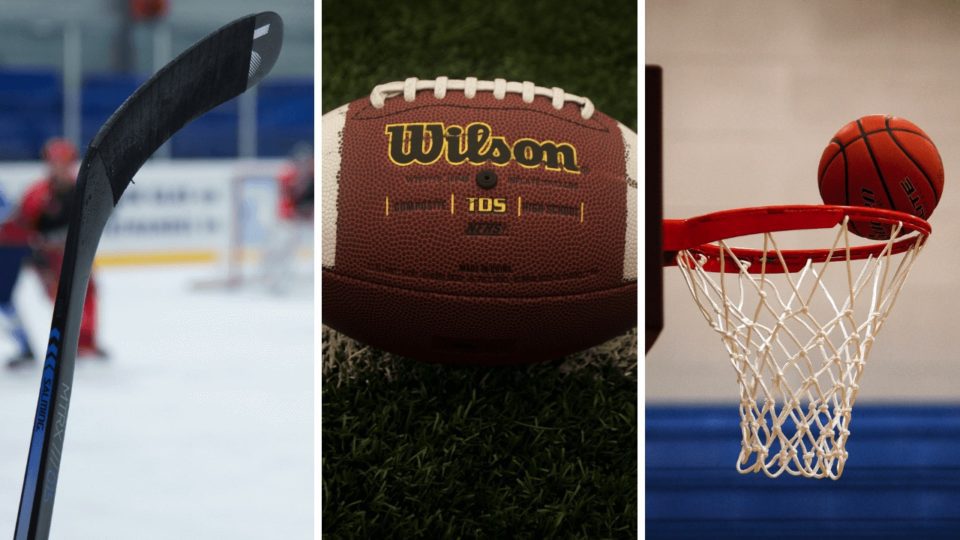Back to school is finally here. Not only does the school bell ring in September, but it’s also the time when Canadians drop the puck, score touchdowns and tip off.
That’s right! It’s the start of the fall sports season, and more than half of Canadian children and youth participate in regular sport.[1]
Kids that participate in sport – both contact and non-contact – are at risk for injuries, including concussions. Because there is no way currently to prevent a concussion, and we understand that proper management and full recovery is critical, we strongly believe that the benefits of sport for children can outweigh the potential risks.
Sport can positively impact kids in so many different ways – mainly mental and physical health, overall wellness and social happiness. Participation in organized sport can help children and youth develop many crucial skills and personality traits that can benefit them now and throughout life.[1]
We’re proud to partner with hundreds of clinics across Canada making a difference in their communities.
Many recognized Complete Concussion Management (CCMI) clinics are partnering with local sports organizations and schools to help improve safety and ensure injured athletes fully recover from a concussion. Having educational programs and concussion protocols in place before a season starts is key!
ACCEL Physiotherapy partners with local football team
ACCEL Physiotherapy & Sport Performance Centre is partnering with the Prince Andrew High Football team in Dartmouth, Nova Scotia again this season. Most recently, Karen Decker, Sport Physiotherapist, met with the players and coaches to educate them about the signs and symptoms of concussion as well as appropriate concussion management.
Sports Medicine and Rehabilitation and Orillia Terriers team up
The Orillia Terriers Junior C Hockey Club announced a partnership with Sports Medicine and Rehabilitation in Barrie, Ontario. Players are provided with preferred access to athlete development, enhanced performance, injury prevention, and access to sport medicine physicians and concussion care, among others, through the local clinic.
https://www.instagram.com/p/BnmQzNZgCGv/?utm_source=ig_share_sheet&igshid=u3zg4fzq391u
Langley Minor Hockey implements concussion management program
Langley Minor Hockey Association announced a partnership with Peak Valley Active Health in Langley, BC to implement an effective concussion management program, including multimodal pre-season concussion baseline testing. Multimodal baseline testing is a series of physical and cognitive tests that provide an overview of healthy brain function, which provides healthcare practitioners with important information on which to compare should an athlete get a concussion. This information can be used to make safer return to play decisions. Click here for more information about the partnership.
Managing concussions in non-contact sports: St. Catharines CYO Basketball
CYO Basketball in St. Catharines, Ontario is committed to protecting the health and safety of their athletes. The organization recently partnered with Brock Pro Health to implement a comprehensive concussion management program. For more information, visit St. Catharines CYO Basketball.
As part of CCMI’s commitment to concussion care for athletes across Canada, we create, implement and enhance concussion protocols and management programs for minor sports organizations, teams and schools. Our network of clinics collaborate with teams to provide concussion care services in their communities.
Visit our website and complete the form for a free consultation with one of our Program Development Managers to discuss a concussion management program that’s right for your organization and players.
Port Moody Amateur Hockey strives for better concussion care
Strive Health & Performance announced a partnership with Port Moody Amateur Hockey Association to implement a full concussion management program, requiring players to be cleared through the Complete Concussion Management return to play protocol.
https://www.instagram.com/p/BntsbOTH3DR/?utm_source=ig_twitter_share&igshid=bq0ew9lcekxa
References
[1] Kids’ Sport. Statistics Canada. Available at:
https://www150.statcan.gc.ca/n1/pub/11-008-x/2008001/article/10573-eng.htm
